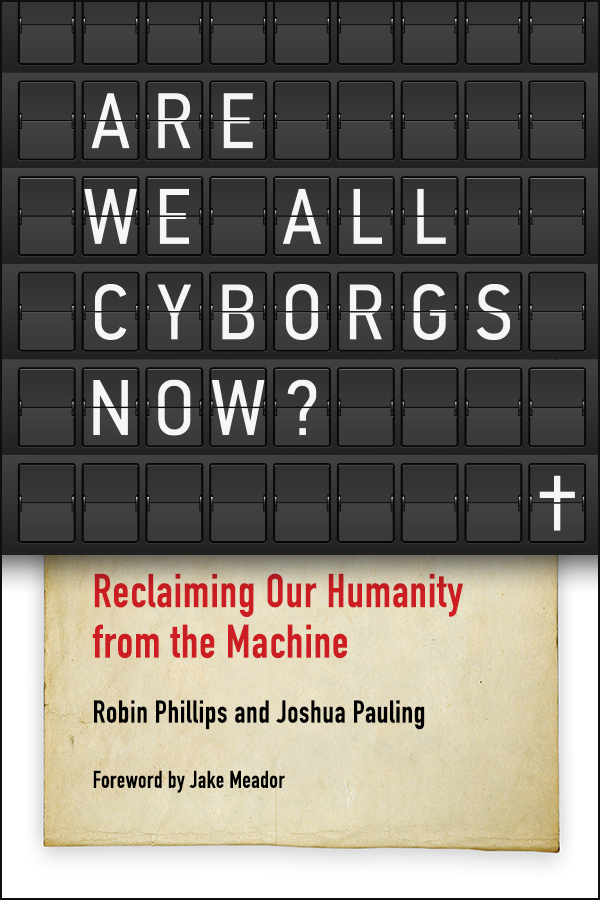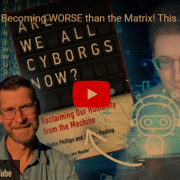
Between now and January 13th, the St. Basil Society has reduced the price of our book, Are We All Cyborgs Now? Reclaiming Our Humanity from the Machine. That means you can now buy it on Amazon for $19.95 instead of $29.95!
If you purchase the book and enjoy it, Joshua and I would be grateful if you could leave a review on Amazon, as reviews are a key component in helping the book reach a wider audience.
If you would like a taste for the approach we take in the book, you can listen to an interview Joshua Pauling just did for Youth4Life podcast. This is available on Apple Podcasts and YouTube.
I also recommend the interview Joshua did with New Books Network, which is available as an audio here, and a transcript at Front Porch Republic. I’ll close with a quote from that interview, where Pauling outlines the approach we’ve tried to take when writing the book.
In writing on technology, it is very easy to fall into one of two extremes which we could call tech-optimism and tech-pessimism. In the book, Robin Phillips and I try and avoid both extremes and offer a realist approach. We try and focus more on analyzing the tradeoffs of technology and providing a framework for folks and give them some tools so they can think through what is best for them in their lives.
For me, I’m not so much concerned about apocalyptic scenarios—the chip in your brain, the alignment problem, or renegade AI—I am more concerned about the subtle ways we’ve already bought into the Machine template. In some ways, we’ve already become cyborgs by living through our screens, and through the subtle ways that we’re outsourcing so much of our humanity to technology (have we crossed what L.M. Sacasas calls the “threshold of artificiality”?).
And perhaps this is the most insidious danger with AI technologies: they offer the false promise that you can skip the kinds of effort and hard work that actually develop the human capacities we need for a full and flourishing life. If we buy into this false promise, we lose the capacity to exercise those gifts, we never learn what our gifts might be in the first place—gifts that are only embodied through struggle and exercise. When we outsource tasks to AI, we atrophy. We outsource ourselves.


